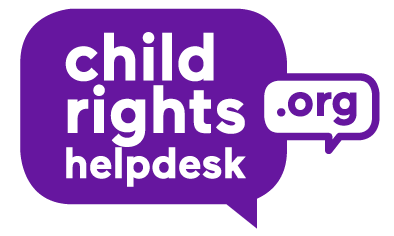The UN-Committee on the Rights of the Child (UNCRC) has again found that the age assessment procedure in Spain violates several fundamental rights of the child complainants, as laid down in the Convention on the Rights of the Child (CRC). The UNCRC has come to this same conclusion in fourteen decisions against Spain since 2019. In particular, Spain’s age assessment has violated the right to identity (article 8 CRC), the right to be heard (article 12 CRC), and the right to special protection of children deprived of their mily environment (article 20 CRC). These decisions have led to political discussions (including in European parliament) and guidance from European agencies.
In the more recent cases of A.L., from Algeria (16/2017), M.T., from Ivory Coast (17/2017), J.A.B., from Cameroon (22/2017), and M.A.B. and R.K., from Guinea (24 and 27/2017), Spain disregarded the children’s claimed ages, the documentation they provided (including statements by government officials of their countries of origin), denied their rights to information and legal assistance, and placed them in reception centers with adults, while relying on radiological examinations for age assessment.
The UNCRC emphasizes that a proper age assessment of someone who claims to be under 18 is of fundamental importance, since this determines their access to their rights as children and related safeguards.. In General Comment no. 6 and Joint General Comment no. 4, the Committee specifies that age assessment should be conducted in a scientific, safe, fair, child and gender-sensitive and culturally appropriate manner. The Committee calls on States to refrain from using medical methods, for example based on bone and dental exam analysis, because they can be traumatic for the child and allow too great a margin of error for precise age assessment. Finally, the Committee stresses that refugees whose age is disputed should enjoy the benefit of the doubt and enjoy special care and protection as children, until proved otherwise.
Proper age assessment
The current EU Asylum Procedures Directive establishes in Art. Article 25(5) that if ‘Member States are still in doubt concerning the applicant’s age, they shall assume that the applicant is a minor’. Furthermore, ‘any medical examination shall be performed with full respect for the individual’s dignity’ and ‘shall be the least invasive’.
The European Asylum Support Office (EASO), an agency of the European Union, shares these concerns, and stresses that age assessment merely based on the estimation of physical appearance is inadequate. EASO further calls for children whose age is disputed to be granted care under the benefit of the doubt, and that age assessment should be conducted exceptionally, when it is truly necessary. Moreover, states must utilize least invasive, non-medical, psychosocial assessment first, use radiology as a last resort, and always respect the bodily integrity of the child (e.g. prohibiting nudity).
We call on the EU, including EASO and EU member states, to fully and correctly implement age assessment procedures that respect the rights and best interests of the child, in compliance with their obligations under the UN CRC. States must ensure that their border control, migration and asylum policies do not prevent anyone between the ages of 0-18, especially when travelling unaccompanied by family or guardian, from accessing their rights under the convention.
More information:
- Press release 13 October 2020
- Council of Europe and EASO child-friendly video on their rights in age assessment procedures 20 November 2020
Available in multiple languages - Council of Europe Report on a human rights approach to age assessment, December 2019
- EASO Practical guide on age assessment, 2018
